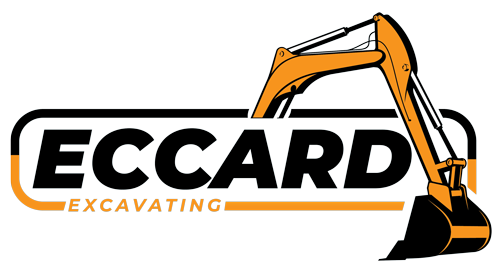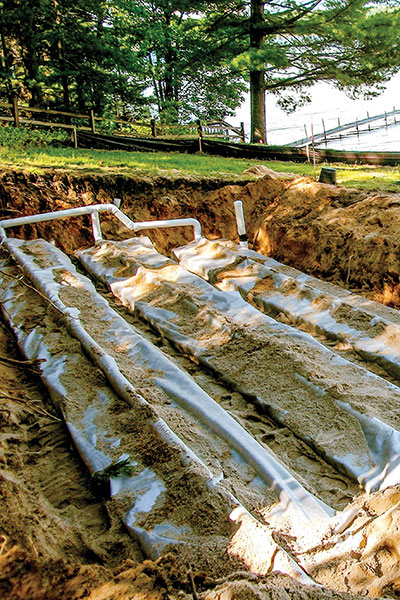Quality Look After Your Septic Tank
Preserving a septic system may not be the most thrilling subject, but it is definitely an essential aspect of homeownership that demands attention. Appropriate maintenance is crucial to preventing costly fixings and ensuring the long life of your septic system.
Relevance of Normal Inspections
Routine examinations of your septic system are crucial for ensuring its proper performance and longevity. By carrying out routine examinations, you can spot any type of prospective concerns early, preventing expensive fixings or replacements down the line. Septic tanks are important to managing family wastewater in locations without access to metropolitan sewer systems, making their maintenance vital.

During an inspection, a specialist will certainly assess numerous elements of the septic tank, such as the tank, pipelines, and drainpipe field. They will certainly look for indicators of leaks, blockages, or other damage that could hinder the system's effectiveness. Furthermore, experts will examine the degrees of scum and sludge in the tank to figure out if pumping is required.
Routine examinations additionally add to environmental protection by guaranteeing that the septic tank is running effectively and not polluting the bordering dirt or groundwater. By investing in routine inspections, property owners can prolong the life-span of their septic tank and stay clear of the inconvenience and expense of system failures.
Proper Waste Disposal Methods
Reliable administration of waste from your septic system is important to avoid environmental contamination and maintain the system's performance with time. Correct waste disposal methods include bearing in mind what decreases the drains pipes and toilets connected to the septic tank. To guarantee optimum efficiency, prevent purging non-biodegradable things such as paper towels, wipes, womanly health items, and chemicals like paint or electric motor oil. These items can obstruct the system, disrupt the natural breakdown of waste, and damage the setting.
In addition, it is essential to restrict using anti-bacterial soaps and extreme chemicals that can interfere with the equilibrium of germs in the septic container essential for damaging down waste. Instead, select septic-safe cleaning products that are naturally degradable and ecologically pleasant.
Frequently pumping out the septic system every 3-5 years, depending on family size and water usage, is likewise essential to avoiding solids from constructing up and clogging the system. By complying with correct garbage disposal methods, you can ensure the durability and performance of your septic system while securing the setting.
Understanding Your Septic tank's Capacity
To ensure the correct performance and longevity of your septic system, it is essential to have a clear understanding of its capability and limitations. The capacity of a septic system refers to its capability to effectively treat the wastewater and manage generated by your home. This capability is established by aspects such as the size of the tank, the drain field's measurements, dirt leaks in the structure, and the water usage routines of the occupants.
Recognizing your septic system's capability is crucial for preventing overloading, which can result in back-ups, smells, and system failings. By understanding the limitations of your system, you can change your water use, timetable normal upkeep, and prevent practices that might stress its capability.
Regular inspections by an expert can aid examine your septic click here to find out more tank's current capability and determine any possible issues that may influence its performance. By remaining educated and proactive, you can ensure that your septic tank runs efficiently and efficiently for many years ahead.
Preventative Maintenance Tips

Signs of Potential Septic System Issues
Frequently evaluating your septic system for any type of signs of possible problems is essential in maintaining its optimum functionality and preventing pricey repair work. One common sign of a septic system issue is slow water drainage in showers, sinks, or commodes. This might suggest an obstruction or a complete sewage-disposal tank that requires to be pumped. Nasty smells around the septic system or drainpipe area are one more red flag. These smells may suggest a leakage or a back-up in the system that needs immediate attention.
Merging water or excessively lush turf growth above the drainpipe field can indicate a problem with the system not correctly draining pipes. Gurgling sounds originating from drains when water is running might suggest an obstruction in the pipelines. Furthermore, if you notice sewage back-ups in your drains or toilets, it is a clear indicator of a septic tank concern that calls for timely specialist treatment. Being vigilant and addressing these signs early can assist protect against even more considerable troubles and costly repair services down the line.
Final Thought
Finally, preserving a septic system is important for guaranteeing its long life and efficiency. By conducting normal inspections, using proper waste disposal strategies, comprehending the system's capability, and implementing preventative upkeep measures, house owners can avoid pricey repair services and possible carcinogen. Identifying the indicators of prospective septic system problems early on can also help over here protect against major issues in the future. On the whole, investing in quality take care of your septic system is essential for its appropriate performance. septic services canal winchester oh.

During an inspection, an expert will examine numerous components of the septic system, such as the storage tank, pipes, and drainpipe field.Efficient management of waste from your septic system is necessary to protect against ecological contamination and maintain the system's functionality over time. Correct waste disposal methods entail being conscious of what goes down the drains useful reference pipes and toilets connected to the septic system. In addition, if you observe sewer back-ups in your drains or bathrooms, it is a clear indicator of a septic system concern that calls for prompt professional intervention.